ClearStar Background Check Errors? Here’s How to Fix Them and Claim Compensation!
- Blog
- Employment Background Check Errors
ClearStar Background Check Errors? Here’s How to Fix Them and Claim Compensation!

ClearStar background check errors could cost you a job. Fix mistakes and get compensation!
ClearStar background check errors hurt your career, but you have legal rights. Learn how to dispute mistakes, fix your report, and get money. Consumer Attorneys can help if you’ve been harmed.
You've worked hard to build your career, and everything seems to be falling into place—until an unexpected background check error throws a wrench in your plans. It feels highly unfair, and honestly, that’s because it is.
ClearStar background checks, like many others, can sometimes contain errors that impact your job prospects. In this guide, Consumer Attorneys explains what ClearStar background checks include, how mistakes can occur, and—most importantly—the steps you can take to fix them. We’ll also discuss how you may be entitled to compensation if these errors have caused you harm.
When your future is at stake due to someone else’s mistake, it’s natural to feel anxious and unsure of what to do next. But you don’t have to face it alone.
ClearStar, founded in 1995 (originally called “Compass”), is a well-established provider of background checks and drug screenings. Despite its reputation, errors in their reports have cost some of our clients job opportunities and more. If you’ve discovered errors on your ClearStar background check, read on to find out how to correct them, how long these checks typically take, and when you should contact a background check attorney for help.
What Does a ClearStar Background Check Include?
A standard ClearStar background check can cover several areas of information, depending on the employer’s needs:
| Area of Information | What It Looks For… | Are Mistakes Possible? | Could the Mistake Be a Problem? |
|---|---|---|---|
| Federal, State, and County Criminal Records | Searches for convictions, pending charges, and criminal history at multiple levels of government. | Yes | Criminal background check error could result in job rejection, harm to your reputation, or missed housing opportunities. |
| Sex Offender Registry Checks | Verifies whether an individual is listed in the sex offender registry. | Yes | A wrongful listing could lead to job disqualification, especially in sensitive fields like education or healthcare. |
| Motor Vehicle Records | Reviews driving history, including license status, violations, and DUI offenses. | Yes | Incorrect data could impact employment for driving-related roles or insurance rates. |
| Employment History Verification | Confirms past employment, including job titles and dates of employment. | Yes | Errors here can suggest dishonesty, causing the employer to rescind job offers or view you as unqualified. |
| Education Verification | Verifies degrees, certifications, and academic credentials. | Yes | An inaccurate report could lead to disqualification from jobs that require specific degrees or certifications, potentially damaging your professional credibility. |
| Personal Reference Verification | Contacts provided references to validate character and qualifications. | Yes | Misreported reference feedback could negatively affect your hiring prospects, especially if critical skills or character traits are questioned. |
| Professional License and Credentials Verification | Confirms licenses and certifications required for specific industries (e.g., healthcare, legal). | Yes | Errors in licensing information could disqualify you from professional roles where valid certifications are mandatory (e.g., lawyers, nurses, financial advisors). |
| Industry-Specific Searches | Tailored to specific industries, like FDIC for banking or SEC for financial services. | Yes | Inaccurate searches in regulated industries (e.g., banking, finance) can prevent you from working in jobs that require stringent compliance with industry regulations. |
| Credit History | Includes credit score, outstanding debts, and financial responsibility. | Yes | Incorrect credit reports could prevent you from obtaining jobs in finance, leasing property, or securing loans, as they may suggest financial irresponsibility. |
| Civil Records | Searches for civil lawsuits, judgments, and liens. | Yes | A wrong civil record could suggest financial instability or legal trouble, which could make employers hesitant to hire or landlords reluctant to rent. |
| International Searches | Background checks across 230+ countries for global work or travel. | Yes | Incorrect or incomplete international records could affect opportunities with multinational companies or roles requiring international clearances. |
| FCRA-Compliant Social Media Checks | Review social media profiles for compliance with employer standards (e.g., behavior, affiliations). | Yes | False or misinterpreted social media activity can damage your reputation and cause job rejections, especially in roles requiring public trust (e.g., PR, government positions). |
Key Takeaways:
- Mistakes are possible in almost every category of a ClearStar background check.
- These mistakes can cause serious problems, including job loss, disqualification from roles, reputational harm, and more.
- If you find an error, contact a consumer protection attorney to help you dispute the mistakes and claim compensation if needed.
Employers often tailor their ClearStar background check system to fit the job, selecting only the categories relevant to the position. So, not every job will require a full background check, but you have a right to know what they are reviewing. Before they conduct the check, you'll need to give your consent, and the paperwork will likely list the type of screening ordered. If you're wondering how far back does a ClearStar background check go, the range of information reviewed depends on the type of data requested. Criminal records, for instance, may go back decades, while credit reports often look at the last seven years.
Does a ClearStar Background Check Show Former Employers?
Yes, ClearStar's employment history verification typically includes a list of your previous employers, their locations, your job titles, and dates of employment. Most checks cover several years of your work history, though the exact length can vary based on the position.
If your report contains missing or incorrect employment information, you can—and should—dispute it. The only exception may be for 1099 workers (independent contractors), where details might not appear as clearly. However, even for 1099 work, screening companies often rely on reference checks, tax records, or public information to verify past roles.
How Long Does a ClearStar Background Check Take?
On average, ClearStar's background check time is 2-5 business days. However, this can vary based on the complexity of the search, the responsiveness of the schools you’ve attended and the places you’ve worked, the online availability of public records, and ClearStar’s workload. Here's a more detailed breakdown of typical timelines:
- Instant checks. Identity verifications and Social Security number validations.
- Employment and education verifications. 1-7 days.
- Criminal records searches. 2 days to 2 weeks, depending on how many jurisdictions are involved.
- Motor vehicle records. 1-7 days.
- Drug screenings. 1-2 business days.
If your ClearStar background check status remains incomplete after two weeks, it’s time to follow up with ClearStar or your potential employer. Delays can occur for several reasons, including holidays, court closures, or difficulties in verifying certain information. If the report takes unusually long, it could signal an issue that needs attention.
What to Do If You Find Errors on Your ClearStar Background Check?
If you are denied the job, the promotion, or continued employment because of a ClearStar background check, your employer or the potential employer must give you a copy of the report and identify what it was on the report that prompted them to not hire or promote or keep you.
Review that report thoroughly.
Taking immediate action is crucial if you find mistakes in your ClearStar background check. Errors can damage your job prospects, but there are steps you can follow to protect yourself:
- Contact an attorney right away! At Consumer Attorneys, we help clients every day correct background report errors and get compensation. We know the process and can guide you step by step.
- Request a copy of your report. By law, you're entitled to it. Review it carefully to see what the employer sees.
- Highlight the errors. Whether it’s a wrong criminal record, missing employment, or outdated education information, make note of all inaccuracies.
- Dispute the mistakes via certified mail. You’ll need to send a letter detailing the errors and providing supporting documents to ClearStar (and your employer, if needed). Certified mail ensures that your rights are protected.
- Wait for the response. ClearStar has 30 days to investigate your dispute. If they don’t resolve it, or if you're still facing problems, contact Consumer Attorneys for further assistance.
Fixing these mistakes quickly can prevent unnecessary harm to your job prospects, but if ClearStar background screening services refuse to correct the errors, we can help you escalate the matter.
Who Should You Contact?
When dealing with errors on your ClearStar background check, there are three key parties to contact:
1. An Attorney
Having a background check attorney on your side is invaluable when disputing errors in your background check. From drafting letters to gathering evidence, an attorney can ensure your dispute is handled properly—and if needed, they can help you sue for damages if ClearStar’s mistakes caused you to lose a job or suffer financially.
If you’re not sure if you need an attorney, give us a call anyway. We will listen to your story, assess your possible case, and give you the best next steps you can take.
2. ClearStar
Send your dispute to ClearStar via certified mail, never online. Online forms often require you to waive important rights. Once your letter is sent, ClearStar must investigate and respond within 30 days.
3. Your Employer
Communicate with the HR department at your prospective employer. Explain the errors you found and the steps you are taking to resolve them. Though employers are not required to reverse a hiring decision, your professionalism and transparency may work in your favor.
Filing a Complaint with the FTC
If you find unethical behavior or ongoing errors in your ClearStar background check, you can also file a complaint with the Federal Trade Commission (FTC). The FTC enforces compliance with the Fair Credit Reporting Act (FCRA), which protects your rights during the background check process and provides rules that ClearStar must obey - including possibly paying for your legal fees!
A background check error can jeopardize your career, your future, your reputation, and your life. But with the right approach, you can correct them and minimize the consequences. With the right attorney, you can be compensated for the actual damages you’ve endured.
If you need help disputing errors in your ClearStar background check, don’t hesitate to contact Consumer Attorneys. We’re here to protect your rights and ensure that these mistakes don’t stand in the way of your future.
Frequently Asked Questions
Typically, a ClearStar background check takes about 3-5 business days to complete. Employers use these checks to investigate a candidate's identity, employment history, education, and criminal records by searching multiple databases and records. While the initial summary report is often available within 24 to 72 hours, the comprehensive (broader) report usually takes a few days longer. This timeframe allows ClearStar to thoroughly verify all aspects of the applicant's background, ensuring the information is accurate and reliable for employers. Sometimes background checks are delayed because of court closures, holidays, and weekends. It’s important to track the status and contact ClearStar if it has taken longer than 2-weeks.
A ClearStar background check examines various aspects of an applicant's history to ensure they are a good fit for the position. ClearStar background screenings include identity verification, employment history, academic performance, criminal records, drug and alcohol tests, driving history, credit reports, and checks for registered sex offenders. ClearStar explores national and county-level databases to uncover any significant issues that might impact hiring decisions. This thorough screening process helps employers make informed decisions by providing a complete view of the candidate’s background. Sometimes an employer may not need an extensive background screening and will only request a basic background check. Check with your employer beforehand regarding the type of screening required.
You’ll know if an employer is conducting a background check through ClearStar because they are required to inform you and obtain your written consent beforehand. Under the Fair Credit Reporting Act (FCRA), applicants have several background check rights. One of the rights an applicant has is the right to be notified by an employer if they plan to use a background check in their hiring process. Additionally, if any inaccurate information is found and it affects their employment decision, they are obligated to inform you. This transparency ensures you are aware of and can respond to any potential issues in your background report.
Yes, a ClearStar employment background check will verify the employers listed on your resume or job application. It confirms specifics about your work experience, such as the positions you held, periods of employment, and rehire eligibility. ClearStar contacts previous employers to ensure the details you provided match their records. This verification process helps employers confirm the accuracy of your employment history, supporting your credibility as a candidate. Sometimes background check companies mess up and when they do, Consumer Attorneys will help you challenge their mistakes, dispute and remove errors, and help you get money for the harm they caused you!


Daniel Cohen is the Founder of Consumer Attorneys. Daniel manages the firm’s branding, marketing, client intake and business development efforts. Since 2017, he is a member of the National Association of Consumer Advocates and the National Consumer Law Center. Mr. Cohen is a nationally-recognized practitioner of consumer protection law. He has a we... Read more

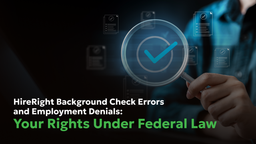


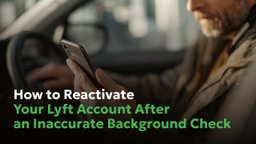
Related Articles
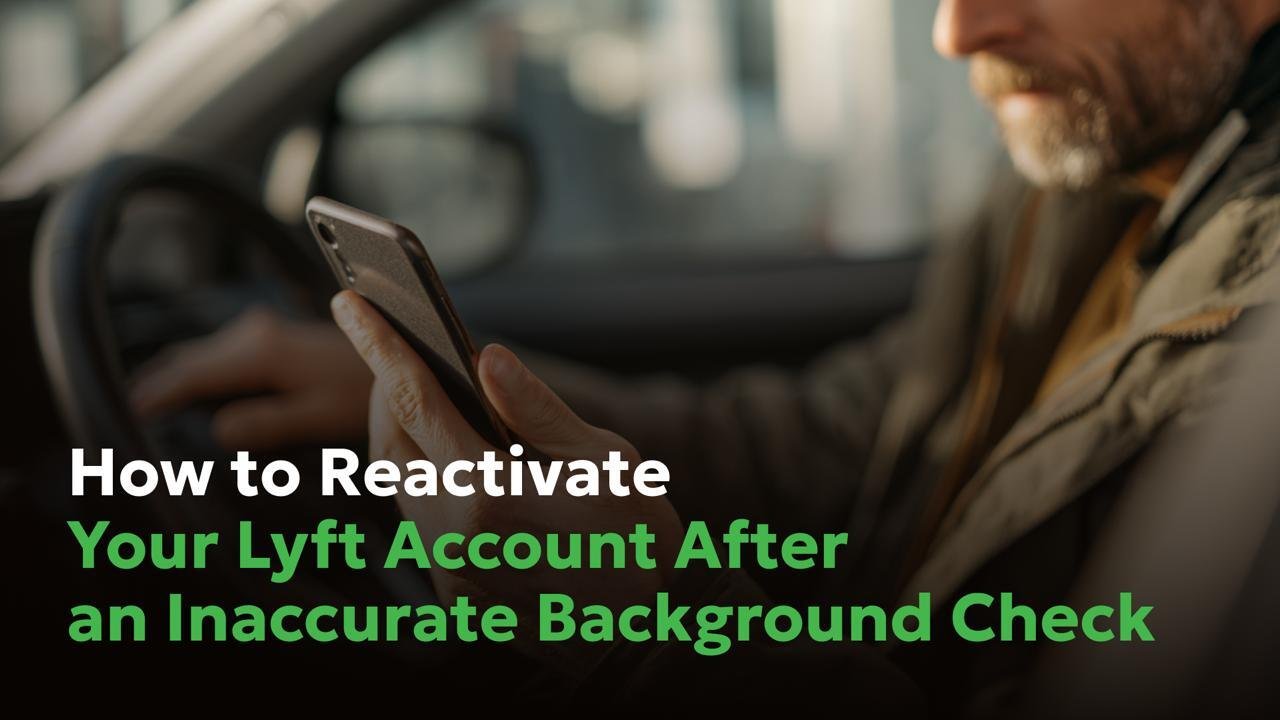
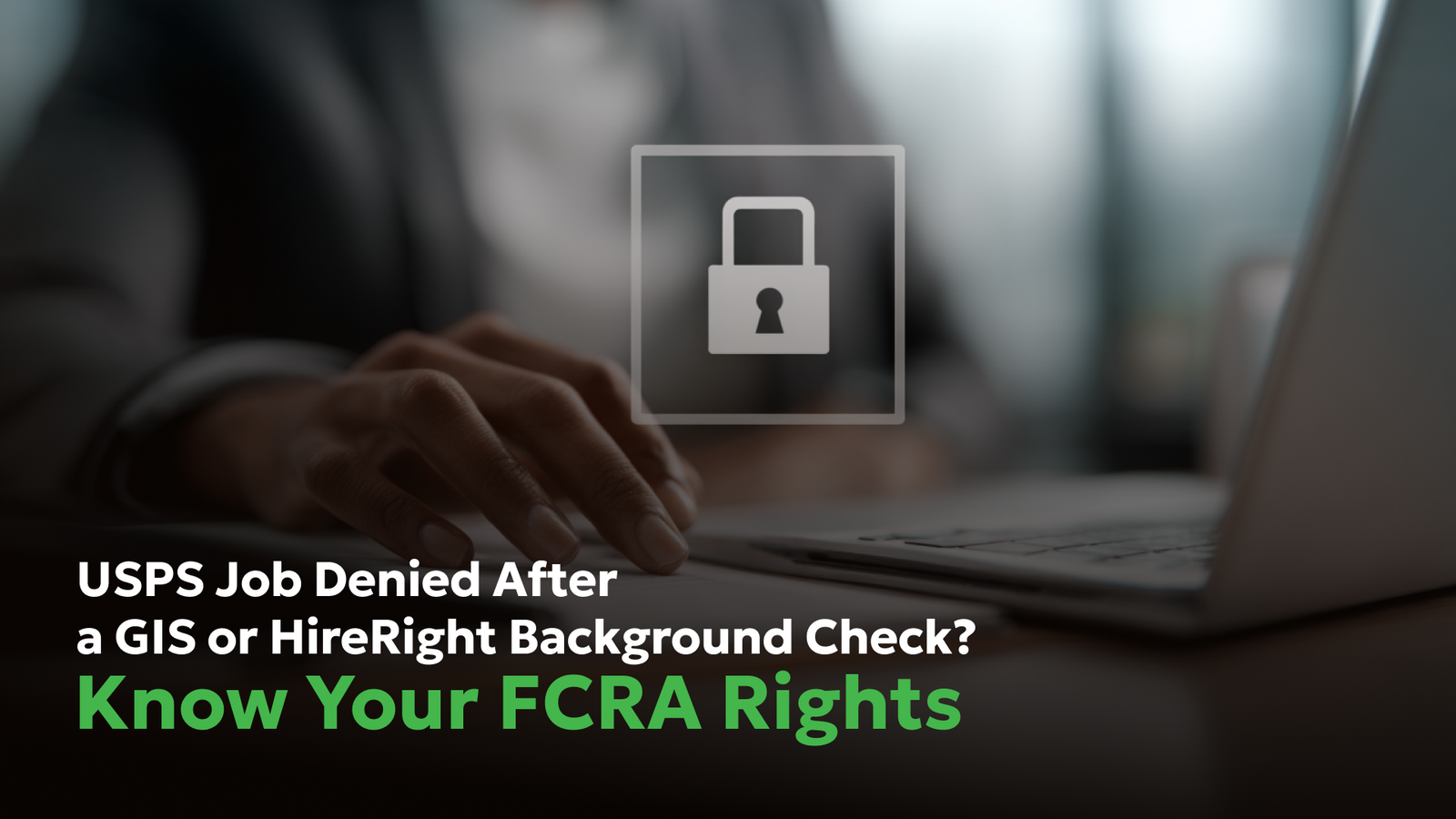
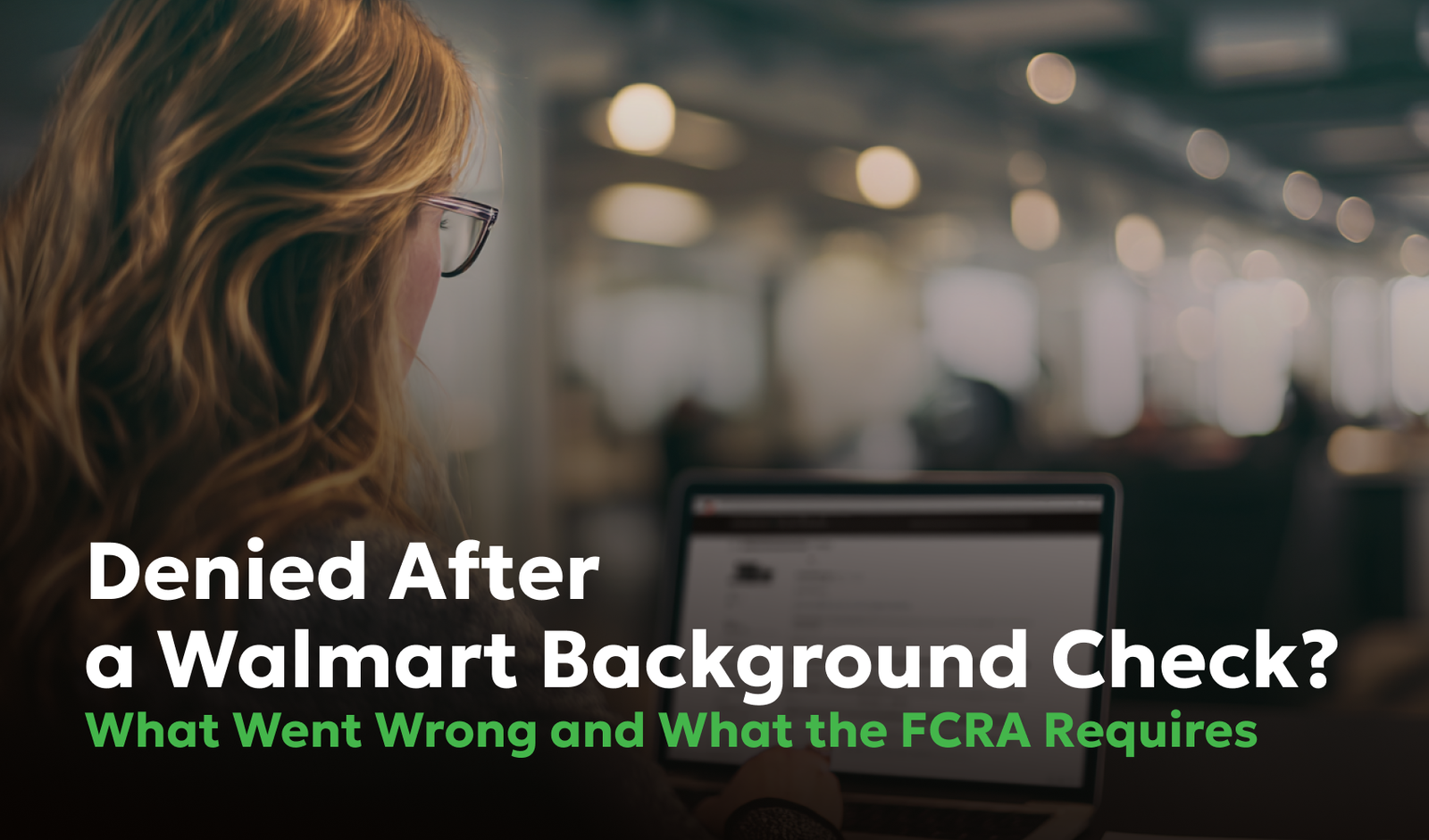

R
ONGS™You pay nothing. The law makes them pay.


